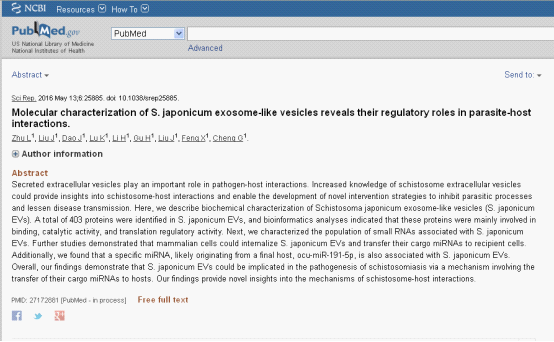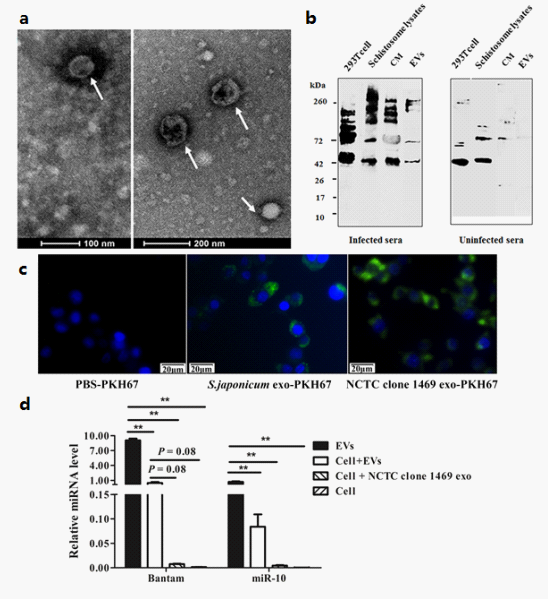Recently, the animal schistosomasis innovation research group led by Prof. Guofeng Cheng at Shanghai Veterinary Research Institute of CAAS have found that S. japonicum exosome-like vesicles (S. japonicum EVs) are involved in the regulation of parasite-host interactions. This finding was published in the Scientific Reports in May 2016.


Secreted extracellular vesicles play an important role in pathogen-host interactions. Increased knowledge of schistosome extracellular vesicles could provide insights into schistosome-host interactions and enable the development of novel intervention strategies to inhibit parasitic processes and lessen disease transmission. In this study, researchers report on the biochemical characterization of S. japonicum EVs by using LC-MS/MS and small RNA sequencing. A total of 403 proteins were identified in S. japonicum EVs, and bioinformatics analyses indicated that these proteins were mainly involved in binding, catalytic activity, and translation regulatory activity. Further studies demonstrated that mammalian cells could internalize S. japonicum EVs and transfer their cargo miRNAs to recipient cells. Additionally, a specific miRNA, likely originating from a final host, ocu-miR-191-5p, is identified in S. japonicum EVs. The research demonstrated that S. japonicum EVs could be implicated in the pathogenesis of schistosomiasis via a mechanism involving the transfer of their cargo miRNAs to hosts. These findings provide novel insights into the mechanisms of schistosome-host interactions. More details are available on the bellow links:
http://www.ncbi.nlm.nih.gov/pubmed/27172881
From Lihui Zhu ,

